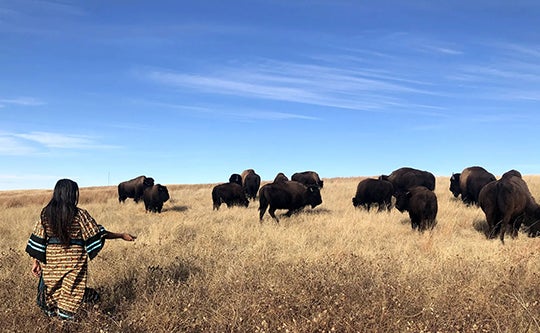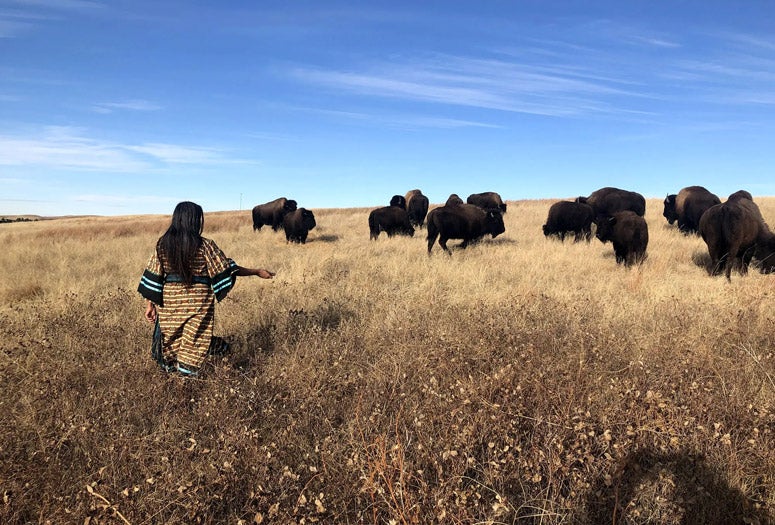
Rice University students will build skills in science labs, take high-impact field trips, hear from guest speakers, curate art exhibits, enhance learning through simulations and more thanks in part to George R. Brown Teaching Grants.
The grants enhance undergraduate student learning through teaching innovation. Last year, the university doubled the total funding available each year. In 2024 and 2025, 13 proposals were funded in full or in part with a total of $60,000 awarded.
This year’s teaching grants will fund the following projects:
- Damian Blättler, associate professor of music theory, received a grant to buy melodicas for an introductory music theory course. The instruments help students grasp foundational concepts through sound and movement. “The grant will allow me to create a portable, inclusive keyboard laboratory in the music theory classroom,” Blättler said. “The melodicas will provide kinesthetic reinforcement for the foundational objects in the music theory curriculum and demonstrate that, alongside being a worthwhile scholarly pursuit, music theory is also an incredibly useful tool for real-time music-making.”
- Marya Cokar, assistant teaching professor of chemical and biomolecular engineering, received a grant to design and construct a gas lift that allows students to quantitatively study oxygen mass transfer in water. In the experiment, students will flow gas through a column at varying velocities and temperatures. Data collected through both the oxygen probe and ultrasonic flow meter will allow students to determine the oxygen transfer rate and understand how different conditions affect mass transport.
- Lucas Garcia Camargo, assistant teaching professor of chemical and biomolecular engineering, received a grant for field trips to industrial plants near Houston to bridge academia and industry and foster career readiness. “The project reintroduces industrial plant visits for chemical engineering students, offering direct exposure to real-world engineering applications and enhancing classroom learning through experiential insight,” Camargo said. “The grant provides essential transportation funding without which these high-impact site visits, discontinued for over a decade, would remain inaccessible due to cost and logistics.”
- Huatse Gyal, assistant professor of anthropology, will take students in the class, Indigenous Environmental Movements, on field trips to the Texas Tribal Buffalo Project, an Indigenous-led initiative focused on restoring buffalo to their ancestral lands in south-central Texas. The grant will support several field trips over the next two years, Gyal said.
“Incorporating this vital aspect of land-based education would not have been financially feasible without the support of the Brown Teaching Grant,” he said. - Yimo Han, Hanyu Zhu and Ricardo Zednik, faculty in materials science and nanoengineering, received a grant to develop new lab modules that enable hands-on training in key concepts.
- Lorenzo Luzi and Elizabeth McGuffey, assistant teaching professor in the Data to Knowledge Lab and associate teaching professor in statistics, respectively, received funding for a student developer to build apps using dynamic visualizations that improve understanding in probability, statistics and data science courses.
“Introductory probability, statistics and data science courses introduce abstract concepts that many students are encountering for the first time and find difficult to grasp,” Luzi said. “Supplementing traditional instruction with interactive, visual approaches helps make these concepts more accessible to students and facilitates the development of strong, accurate intuition that is crucial for future coursework.” - Bartlett D. Moore IV, assistant teaching professor and director of the cognitive science program, received a grant to buy an electroencephalogram that monitors real-time brain activity.
“Students can use the new EEG system, which measures brain function during cognition, to get hands-on experience with data acquisition and analysis,” Moore said. “In unlocking access to this technology, the Brown Teaching Grant enhances the cognitive sciences program’s ability to provide premier experiential learning that’s not found online or in books. We are sincerely grateful for the award, which will without a doubt have a meaningful impact on Rice undergraduate outcomes.” - Assistant professors of chemistry Quanbing Mou and Raúl Hernández Sánchez received a grant to buy a plate reader that will allow students in lab courses to conduct biochemical experiments such as CRISPR diagnostics, enzyme kinetics and biomolecular interactions, Mou said.
“This equipment now enables large groups of students to gain hands-on experience with advanced analytical techniques that are essential in modern biochemical and chemical research,” Mou said. - Lea Nienhaus, associate professor of chemistry, received a grant to buy an educational atomic force microscope. The chemical measurements lab course is very heavy on optical spectroscopy, Nienhaus said, and the new microscope will diversify the measurement techniques to which students are exposed.
“The atomic force microscope will expand the capabilities of our chemical measurements laboratory and give the students exposure to measurement techniques that are commonly used in research and the semiconductor research field,” said Nienhaus, who is also using funding from the Camille and Henry Dreyfus Foundation to bear the cost of the microscope. - Mary Prendergast, associate professor of anthropology, received a grant to host guest speakers in a new course, Science of the Human Past. The course draws on the natural and physical sciences to understand the archaeological record.
- Caná Ross, assistant teaching professor of biosciences, received a grant to buy multichannel pipettes for the microbiology lab, enabling quantitative antimicrobial resistance testing and giving students research-relevant lab experience.
- Eylem Tekin, lecturer in computational applied mathematics and operations research, received a grant to integrate simulations so that students learn to optimize supply chains and analyze manufacturing systems for data-driven decision-making in industry.
- Carly Thomsen, associate professor of English, received a grant for students to collect and transform objects into a public-facing exhibition for the English course, What Objects Teach Us. The course investigates gender.

